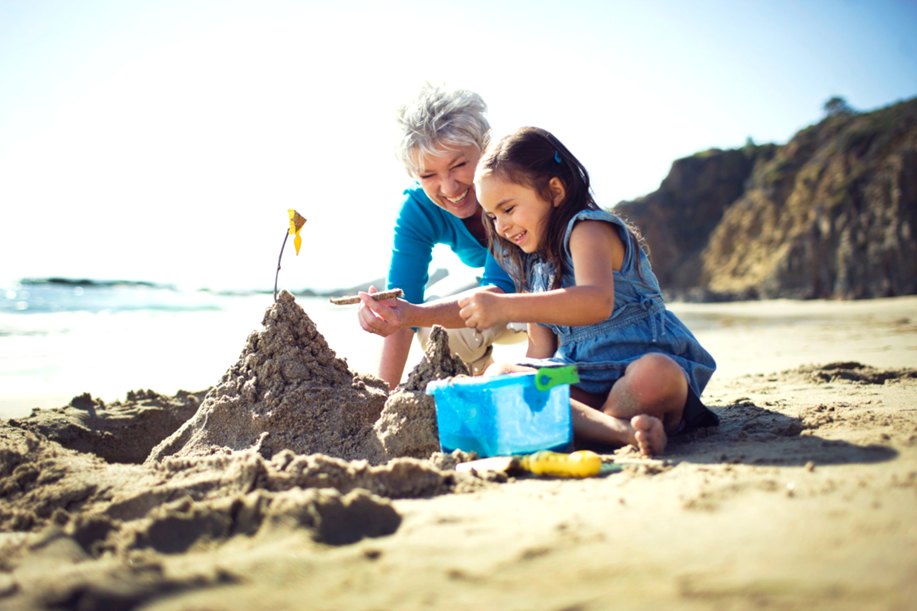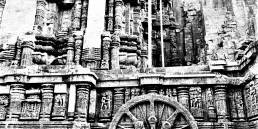SUMMERS OF MY CHILDHOOD

We are born to be restless. To escape the past. To intensify the present. To outrun death. To follow in the footsteps of our ancestors. To move. Until there is a completeness to ourselves!!

W hen I was much younger, before I finished school, me and my brother spent almost all our summer vacations at my Paternal Grandparent’s place. My Jeje and Mama (my Grand-father and Grand-mother respectively), after my grandfather’s retirement had settled in his hometown Bhadrak. Bhadrak city at that time wasn’t what it is now. It used to be a quaint little town in the then Balasore district of Odisha. My Grandfather and his brothers were the Landowners, the Zamindars of a village called Kuansh which had later got merged with Bhadrak town. So, between him and six brothers they owned many orchards, ponds and agricultural land. Of all the things I remember, two things always gladdens my heart. One was the lunch cooked by my dear Mama consisting of Smelt fish (Chunna Maccha) in mustard gravy and steaming hot rice. We Odiya’s have a deep love for fish and almost every day there would be a fresh catch from the ponds that the workers would bring around. Her cooking had unique flavours and of course the fresh produce adding something extra to it. The second thing I remember was me, my brother and cousins stealing mangoes from the store room in the afternoon when everybody else in the house was napping. The Mango orchards would fruit at the time of our vacation and the store room would overflow with variety of mangoes. The storeroom was like a special pantry with arrangement to store potatoes, onion, fruits harvested like Mango, coconut, lemon, berries before some of them would get pickled. We would sneak in after finishing our days quota of mangoes to get some more. I used to relish the thrill of being able to steal mangoes and berry pickle and distributing among the younger siblings which gave me a Robinhood like feeling. My brother, three years younger was a necessary accomplice in this owing to his innocent face, lest we get caught one ought to have the bailout. Thinking of those times always brings a smile to my face reminiscing of a bygone era that was very close to my heart, those carefree, fun and uncomplicated times.
When I was researching this topic, I spoke to my close friend who is also the beta-reader of my articles, about her fondest memory of childhood. It was her summer vacations. Her father hails from the charming Chinatown in Tangra, Kolkata. She and her brothers having been brought up in Gurgaon used to visit her grandparent’s house in Tangra which already had a houseful of cousins who were residing there. One of her favorite memories are relishing the Bengali-Chinese breakfast of Alu-Puri, Singara(samosa), fried sesame balls and youtiao (fried dough) that her grandmother and aunts would prepare. Another friend, also reminiscences her favorite memory as summer vacation spent at her ancestral village in Kandhmal, Odisha, an area which was known for its rustic beauty and frequented by wild animals. Her favorite memory was picking wild fruits and stealing eggs from her grandfather’s poultry with siblings and cousins.
What is common in all three stories is the food, the cousins and the love of grandparents. These vacations were actually creating a bond between us, cousins and grandparents, which we only understood when we reached a much mature age. And now we experience a strong pull to our places of origin. Even when we cannot visit, it’s always in our thoughts.
These connections play a very important role especially in the formative years. Of the many, I can think of I can list atleast three benefits. First, the development of a Sense of belongingness. These vacations and visits in early childhood have been said to foster a sense of belongingness to a place or race or culture that becomes vital in the type of person one develops into. Many studies have also suggested that when children are exposed to the place where their parents belong to, stayed or studied, helps develop a deeper respect for their parents. Second, the psychological and social development caused due to their interaction with Grandparents. Grandparents are known to strongly influence the emotional and psychological development of children in their early formative years. Close grandparent-grandchild relationships are associated with less behavioral and emotional problems and fewer social difficulties with peers in their teenage years. A 2014 study done in Boston College found that “an emotionally close relationship between grandparent and grandchild” is associated with fewer symptoms of depression for both the generations. Another study says that as many as 9 out of 10 adult grandchildren feel that their grandparents influenced their beliefs and values. The third one that I can think of is the development of social skills early on due to interaction with cousins. Cousins are like those siblings that don’t annoy you as much. With Cousins you learn the art of brotherhood/sisterhood, living with competition, sharing resources and being nice to one another. I am sure most readers can relate to this. However, there is also a certain age for gathering such experiences. It has also been seen that when most children reach adolescence they don’t want to visit grandparents’ house as much as they did as kids. It’s only a period between toddler and teens that they love visiting. And the experience they gather creates this strong pull that at a much later age they to go back to see their place of origin. Children growing up in foster homes or orphanages despite having perfectly happy foster homes have been known to go at lengths to search for their biological parents and birth places, just to know where they belong to and who they are.
“We are born to be restless. To escape the past. To intensify the present. To outrun death. To follow in the footsteps of our ancestors. To move. Until there is a completeness to ourselves!!”
When I read the above lines, initially I couldn’t understand the meaning of it. When I delved deep into it and read more about what the author meant. It spoke about what actually happens to us during our life cycle. As children we gather most memories and they keep coming back to us later in our adult lives. We all at some point of time try to search for our roots, our origins, our ancestors. In adult life you hear many people quoting they becoming like their father or mother or grandfather, or slowly starting to become a creature of certain habit, developing a liking for a certain food or starting and enjoying a certain hobby that that any of their predecessors had.
When I tried to know what is the reason behind this strong pull that one experiences, I came across a report that mentioned something called “geography in our bones”. This said report explained the reason of this pull or the familiarity one might experience in a place visited many years back or visited by their parents frequently, has to do something with their DNA. One carries one’s mother’s mitochondrial DNA, otherwise known as mtDNA. And the grandmother’s mother’s too and so on and so forth. The mother’s mtDNA carries a very specific set of mutations that are bound by geography and time. Air and water are vastly different in different areas, and the amount and type of isotypes they contain vary from place to place. Not just countries but in matter of miles. That reflects in the bones and that makes us carry the place or the memory of it with us. And that is what attributes to the strange, inexplicable connection. These connections take them back to what lies in their inner most memories and brings them a sense of stability, tranquility and belongingness. That belongingness that we so much desire in our later lives. So, creating those memories, those connections, those summer holidays are very important in one’s life.






Very nicely described the relationship between grandparents n grandchildren..
Thank you Gayatri…
That’s very well said Soumya….
I also grew up with my Grandmother and still remember the dishes only she used to make….stories what she told us about her life struggle after my Grandfather’s death…and that always helps me to stay strong in any situation I am in….